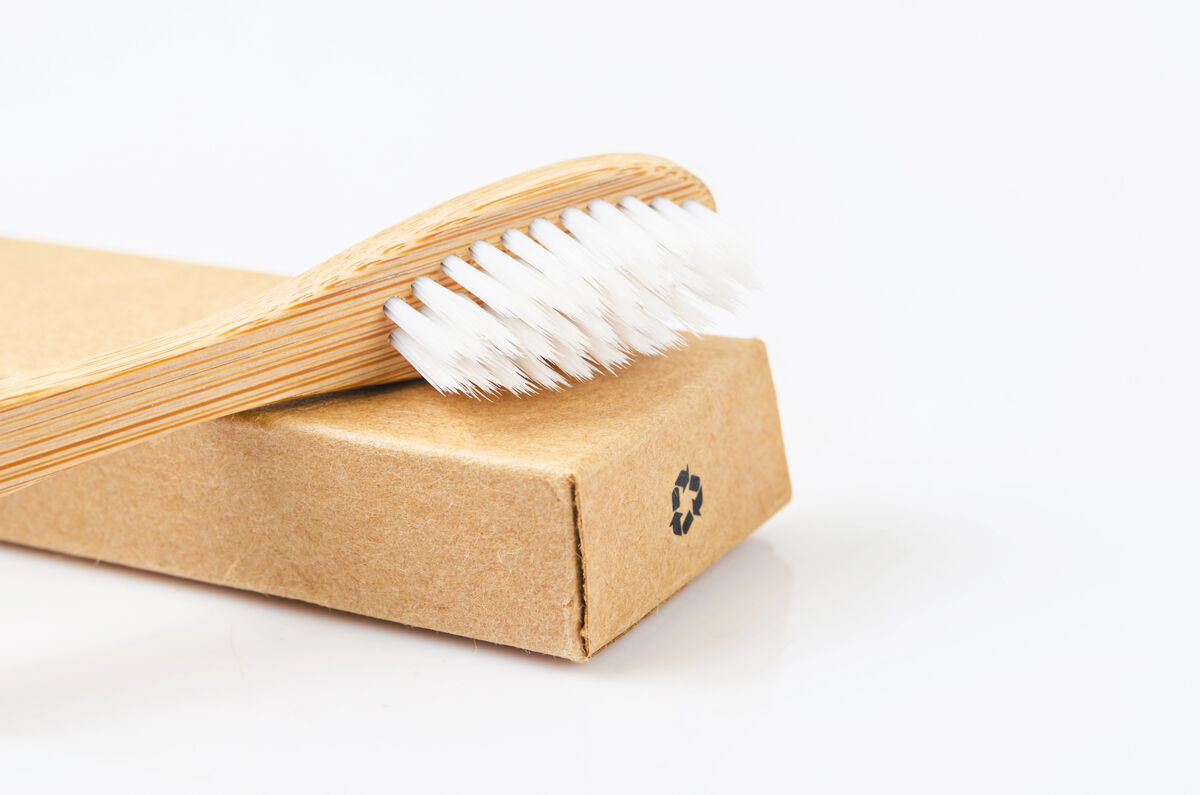Contents

The Wooden Toothbrush: The Eco-Friendly Trend for Sustainable Oral Hygiene
Increasingly popular, wooden toothbrushes are part of a growing zero-waste and environmentally friendly movement. But are these natural alternatives to plastic brushes as effective at removing plaque? What are their advantages and limitations? Discover our selection of the best eco-friendly toothbrushes available now and how to make a responsible choice for your smile and the planet.
The Plastic Problem: A Scourge for the Planet
Every year in the United States, over 1 billion plastic toothbrushes are thrown away, creating approximately 50 million pounds of waste that ends up in landfills and oceans. Composed of materials that are difficult to recycle (a mix of plastic, rubber, and nylon), they can take over 500 years to decompose and contribute significantly to plastic pollution.
While electric toothbrushes seem like a better alternative with their reusable handles, their disposable heads—replaced every 3 months—also pose a significant waste problem. Faced with this reality, wooden and bamboo toothbrushes emerge as a more ecological solution, allowing us to considerably reduce our daily environmental impact.
The Bamboo Solution: Benefits of the Wooden Toothbrush
Attractive and authentic with their zero-waste aesthetic, bamboo toothbrushes have a lot going for them:
- Sustainable Material: Bamboo is one of the fastest-growing plants on Earth and requires no pesticides or fertilizers. It's a highly renewable resource.
- Biodegradable Handle: The handle is fully compostable, breaking down in a home compost bin in about 4-6 months.
- Naturally Antimicrobial: Bamboo has natural properties that help resist bacterial growth, keeping your brush cleaner.
- BPA-Free: High-quality bamboo toothbrushes are made without BPA or other potentially harmful chemicals found in some plastics.
- Effective Cleaning: When designed with quality bristles, they are just as effective as manual plastic toothbrushes at removing plaque and maintaining oral health.
The Downsides and Considerations of Bamboo Toothbrushes
While bamboo brushes are a great alternative, there are a few points to keep in mind:
- The Bristle Dilemma: Most bamboo toothbrush bristles are made from Nylon-6, which is not biodegradable. While some brands use plant-based materials like castor bean oil, these are not always as durable. For proper disposal, the bristles must be plucked out with pliers before composting the handle.
- Moisture Sensitivity: The handle must be kept dry between uses to prevent mold growth. Storing it upright in a well-ventilated holder is essential.
- Bristle Hardness: Always choose soft bristles. Some eco-friendly brands may offer medium bristles, but dentists overwhelmingly recommend soft bristles to protect enamel and gums.
Choosing a Quality Eco-Friendly Toothbrush
We are big fans of toothbrushes from the American brand Brush with Bamboo. They are a leader in the field, offering a product that is USDA Certified 100% Biobased (including the bristles). Their handle is made from certified organic bamboo, and their bristles are made from 100% castor bean oil, making the entire product commercially compostable.
When shopping, look for brands that are transparent about their materials, have FSC certification for their bamboo, and use plastic-free packaging.
Beyond Bamboo: Other Eco-Friendly Alternatives
If bamboo isn't for you, there are other ways to reduce your oral care footprint:
- Brushes with Replaceable Heads: Brands like Goodwell offer handles made from sustainable materials (like aluminum) with replaceable heads, significantly reducing waste over time.
- Brushes from Recycled Plastic: Companies like Preserve create toothbrushes from recycled yogurt cups, giving a second life to existing plastic.
- Toothpaste Tablets: Eliminate plastic tube waste by switching to toothpaste tablets from brands like Bite or Huppy. They come in recyclable glass jars and are great for travel.
Final Thoughts: A Small Change with a Big Impact
Switching to a bamboo toothbrush is a simple yet powerful first step toward a zero-waste bathroom. It's an easy, affordable change that doesn't compromise the quality of your brushing. By making a conscious choice about a product you use every single day, you contribute to a larger movement of environmental responsibility. So why not give it a try?
FAQ: Your Top Questions About Eco-Friendly Toothbrushes
Environmentally, yes. A bamboo handle is biodegradable and comes from a highly renewable resource, whereas a plastic toothbrush handle can take centuries to break down. In terms of cleaning effectiveness, a well-designed bamboo toothbrush with quality soft bristles is just as effective as a manual plastic toothbrush.
Yes, many dentists recommend bamboo toothbrushes as long as they meet key criteria: they must have soft bristles to protect enamel and gums, and the user must practice proper brushing technique. The American Dental Association (ADA) recommends replacing any toothbrush, including bamboo, every 3-4 months.
First, you must remove the bristles using pliers, as most are made of non-biodegradable nylon. The bristles go in the trash. The bamboo handle can then be placed in a commercial or home compost bin, where it will biodegrade. Alternatively, you can repurpose the handle for garden markers or cleaning tools.
